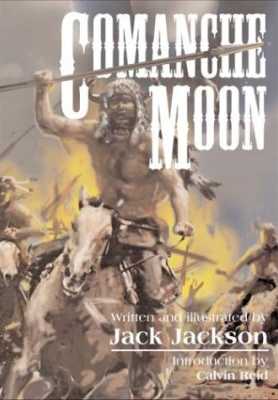The second review errs in that the Comanche loved war no more than did the other Plains tribes with which they competed. And far from being simply 'nomadic,' all these tribes followed the annual migrations of the bison herds, stopping at summer camps in what are now the Dakotas and Canada, and winter camps in what are now Texas and Mexico, that almost always were in the same locations. Though tribes did skirmish frequently over territoriality, true war began only when European expansion and tribes fleeing the Europeans (such as those that became the Sioux) encroached on the Plains and interfered with or even stymied the millennially long-established routes to follow the bison.


2 comments:
Correspondent Eulala Pegram sent me the following note:
The Euchees did not reach the plains area until after the 1830s. After that time, they could probably not have been part of the "Lords of the Plains" with the other tribes mentioned in the article, and, to my knowledge, they did not have the horseman skills of the others. Euchees were originally from what is now Georgia.
"Tybee Island was originally inhabited by the Euchee Native American tribe and gave the island its name: tybee is a Euchee word for salt."
Tybee Island, Georgia - Wikipedia, the free encyclopedia (look under history).
The Euchees were removed to Oklahoma from the SE during the time of removal (called the Trail of Tears by the Cherokee) and are not part of my own tribal government (Muscogee Nation, Okmulgee, OK) with full voting rights, etc. and still keep their own language and customs.
Searching Google, I don't see any info for James Neafus. What I do see is the following:
http://www.eucheemarinaresort.com
Eu·chee (you' chē)
n., pl. Euchi or Euchees
1. A Native American people formerly inhabiting northern Georgia and eastern Tennessee, politically included in the Creek confederacy since the 19th century.
http://freepages.genealogy.rootsweb.com/~wrightsborough/cox-1.htm
The Cherokees maintained relations with the English in South Carolina, North Carolina, and Virginia in an uneasy alliance to block intrusions of northern tribes which were friendly with the French. Smaller tribes like Georgia's Euchees and Yamasees were pressed by the shifting populations of the large tribes and the advancing line of English white settlement coming from the east.
http://appalachiansummit.tripod.com/chapt4.htm
In 1711 Long and Eleazer Wiggen were operating a trading post at Chestowe, a Yuchi town located in present northeastern Georgia below the Cherokee villages.
Post a Comment